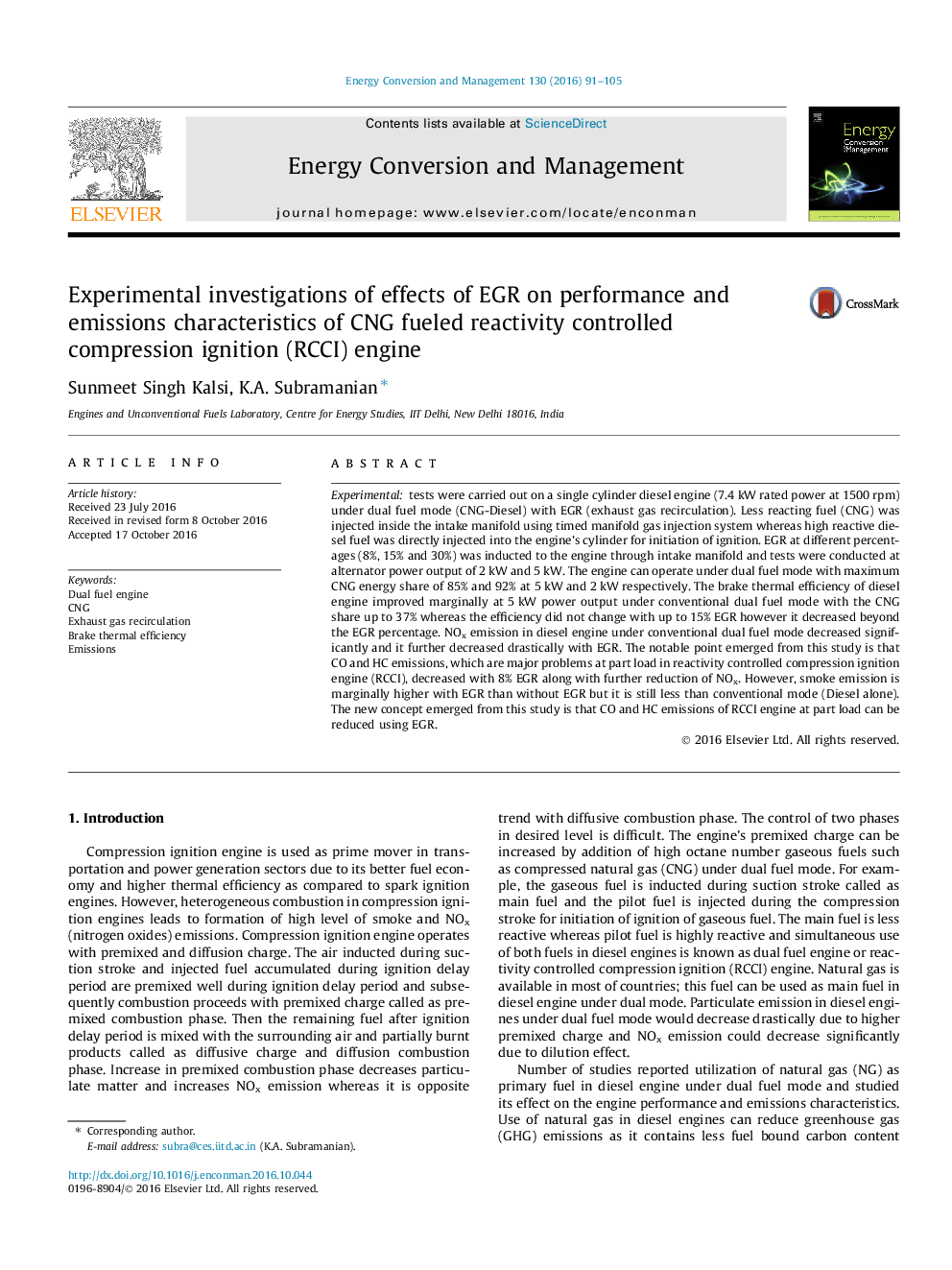| Article ID | Journal | Published Year | Pages | File Type |
|---|---|---|---|---|
| 5013187 | Energy Conversion and Management | 2016 | 15 Pages |
Abstract
tests were carried out on a single cylinder diesel engine (7.4Â kW rated power at 1500Â rpm) under dual fuel mode (CNG-Diesel) with EGR (exhaust gas recirculation). Less reacting fuel (CNG) was injected inside the intake manifold using timed manifold gas injection system whereas high reactive diesel fuel was directly injected into the engine's cylinder for initiation of ignition. EGR at different percentages (8%, 15% and 30%) was inducted to the engine through intake manifold and tests were conducted at alternator power output of 2Â kW and 5Â kW. The engine can operate under dual fuel mode with maximum CNG energy share of 85% and 92% at 5Â kW and 2Â kW respectively. The brake thermal efficiency of diesel engine improved marginally at 5Â kW power output under conventional dual fuel mode with the CNG share up to 37% whereas the efficiency did not change with up to 15% EGR however it decreased beyond the EGR percentage. NOx emission in diesel engine under conventional dual fuel mode decreased significantly and it further decreased drastically with EGR. The notable point emerged from this study is that CO and HC emissions, which are major problems at part load in reactivity controlled compression ignition engine (RCCI), decreased with 8% EGR along with further reduction of NOx. However, smoke emission is marginally higher with EGR than without EGR but it is still less than conventional mode (Diesel alone). The new concept emerged from this study is that CO and HC emissions of RCCI engine at part load can be reduced using EGR.
Related Topics
Physical Sciences and Engineering
Energy
Energy (General)
Authors
Sunmeet Singh Kalsi, K.A. Subramanian,
